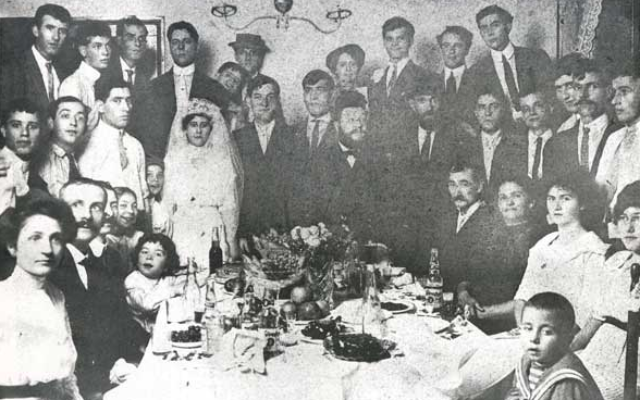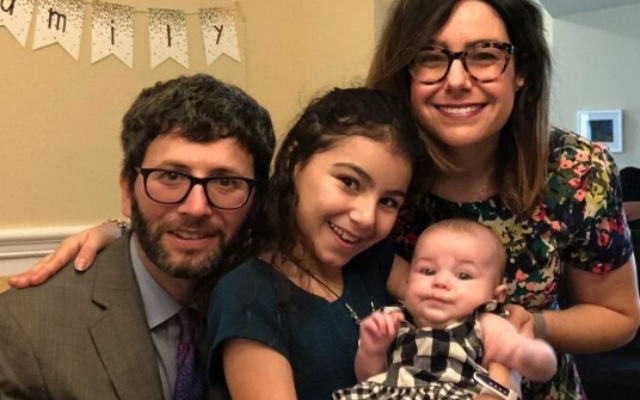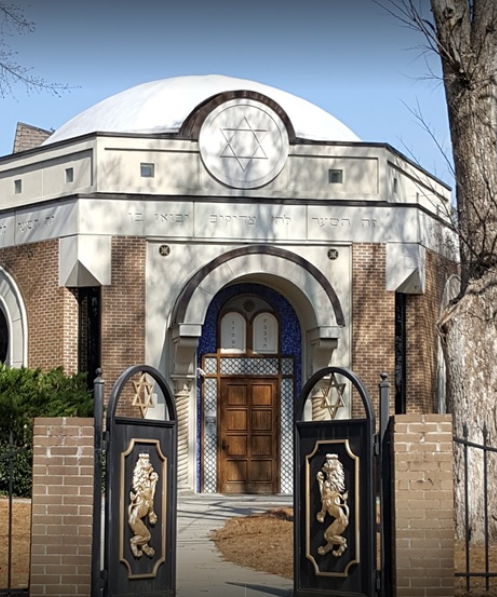Sephardic Synagogue Gets Conservative Rabbi
Congregation Or VeShalom welcomes what is thought to be first non-Sephardic rabbi.
For what is believed to be the first time in its 106-year history, Congregation Or VeShalom, the Sephardic synagogue in Brookhaven, will have an Ashkenazic rabbi as its spiritual leader. Rabbi Josh Hearshen, who grew up in Detroit, is a 2007 graduate of the Ziegler School of Rabbinic Studies at the American Jewish University in Los Angeles. The school is affiliated with the Conservative movement.
Although he has most recently been the rabbi of a Conservative synagogue in Tampa, for the past three summers he has served as the rabbi at Camp Ramah Darom, the Conservative facility in the North Georgia mountains, where he says he’s made many friends from Atlanta. Taking up his new position, he says, is “like coming home.”
He and his wife Carrie, who teaches at the Atlanta Jewish Academy, have two children, including one that was born just before he accepted the job at Or VeShalom.
He spoke with us immediately after one of many personal meetings he’s had with his new congregants, many of whom have a strong sense of history and tradition.
AJT: How does an Ashkenazic rabbi accommodate himself to a congregation that’s always been Sephardic?
Hearshen: I’m on a listening tour right now. I also am doing reading and researching and studying to make sure that I have a firm grasp of the sources and often the different ways that things can be done.
I’m working on the basic premise that I’m not building a synagogue or working at a synagogue for myself. I’m working in a synagogue and building a synagogue for a community. And you have to be the rabbi that their community is looking to have. I’ve entered this job with my eyes wide open and my arms wide open to study and growth and development. And it’s not about my vision. It’s about what our community’s vision is.
AJT: How difficult do you see this job of accommodation and change?
Hearshen: There are so many varieties of Sephardic Judaism. They’re all grown up and they’ve been birthed in disparate communities around the world. That’s why there’s a distinct flavor to Moroccan Sephardic Judaism verses Persian Sephardic Judaism verses Bukharan verses Syrian. I think all of these are very different.
So Sephardic Judaism has always been a very adaptable expression of Judaism. And I believe that that makes it very well suited to look forward to how we can change over these coming years and adapt to the world as it is now. And I believe that that is part of the purpose of my having been hired, to help lead them through those changes. I am a non-Sephardic trained rabbi. I have the experience of the non-Sephardic world in ways to help modify or navigate this synagogue as it looks to grow and develop in the coming years.

AJT: Some of your congregants have expressed concern about growth, even survival. How do you see the question of future growth?
Hearshen: One of the major questions from the younger generations is about how our synagogue responds to modernity. There are issues of gender, issues of Shabbat and all those things. And at what speed will we go in making those things happen. And so I think we have a major conversation that’s already begun about what roles women will be playing in the future and how we will get to that decision. There’s a question of how to feel more comfortable in their Jewish lives that are influenced by the non-Jewish world on a daily basis. Those are the questions that will be examined over the coming years.
And I believe that there are a very large number of family members that want to be a part of this congregation. They’re just waiting to see what happens. And then we also have a very nice young Jewish community, you know, growing here in Brookhaven that we feel very strongly we’ll be able to pick up many of those families.
AJT: One of the highlights of the Chanukah holiday in Atlanta has been the bazaar at your synagogue. Is it going to happen this year?
Hearshen: We’ve spoken about it already. We are having conversations about what it will look like this year. It will be happening somehow. Will it be outdoors? Will it be scaled back? We’re not sure. But we do feel strongly that we can make it happen somehow. We’re working on it.





comments